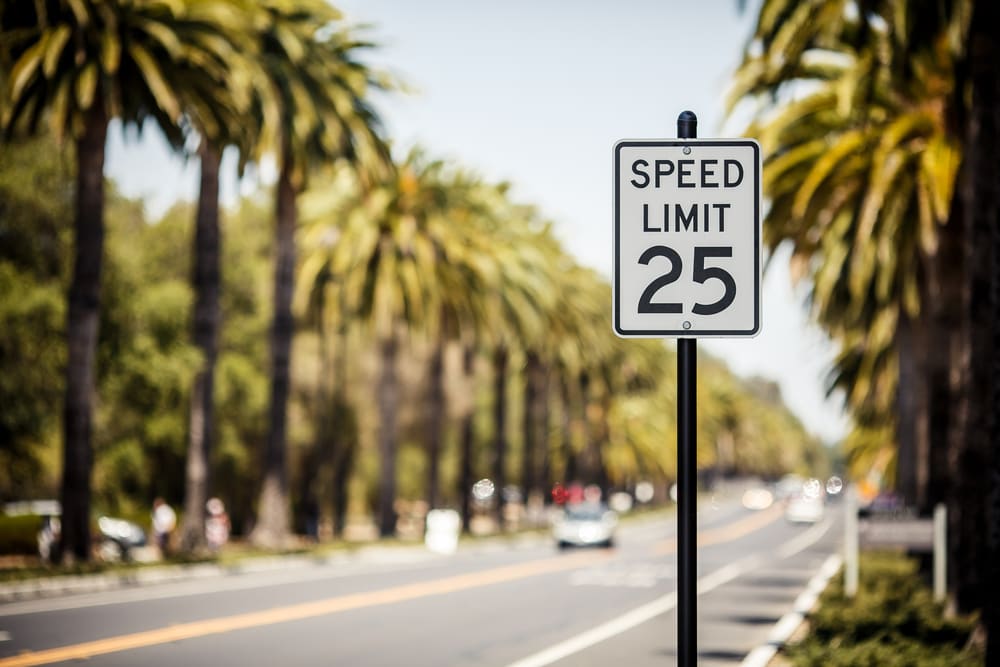

Following is an overview of the laws, limits, and fines as they relate to speeding traffic violations in the state of Texas.
Speed limits in Texas
Texas is the only state without prescribed speed limits for each type of road, whether state or federal. The state also has the highest allowable posted speed limit anywhere in the nation, at 85 mph.
75-85 mph: rural interstates
75 mph: urban interstates and other limited access roads
70 mph: statutory speed limit for numbered rural roads
60 mph: non-state and non-federal roads outside urban districts
35 mph: maximum speed limit in school zones
30 mph: urban districts
30 mph: residential districts
15 mph: alleys
15 mph: on beaches
Texas code on reasonable and prudent speed
Maximum speed law:
According to section 545.351(1) of TX vehicle code, “No person shall drive a vehicle at a speed greater than is reasonable and prudent under the circumstances then existing or under the conditions and having regard to actual and potential hazards.”
Minimum speed law:
Sections 545.363(a) and 545.051(b)] (http://www.statutes.legis.state.tx.us/Docs/TN/htm/TN.545.htm) states:
“No person shall drive so slowly as to impede the normal and reasonable movement of traffic.”
“A person driving at less than the normal speed of traffic shall drive in the right-hand lane then available for traffic or as close as practicable to the right-hand curb or edge of the roadway.”
Due to variations in speedometer calibration, tire size, and margins of error in speed-detecting technology, it’s uncommon for an officer to pull a driver over for going less than five miles above the speed limit. However, technically any amount over can be considered a speed violation so best practices are to stay within the limit.
Texas have prima facie speed laws. This means that a driver is presumed to be breaking the speed law, however the driver may argue that they were driving safely despite exceeding the limit. Alternatively, a driver may choose to go to court and claim their innocence based upon one of the following:
The driver may oppose the determination of speed. In order to claim this defense a driver must know how his or her speed was determined and then learn how to disprove its accuracy.
A driver may claim that an emergency situation caused the driver to break the speed limit in order to prevent injury or damage to themselves or others.
The driver may claim a case of mistaken identity. If a police officer clocks a driver speeding and subsequently has to find them again in traffic, it’s possible that they could have made a mistake and pulled the wrong car over.
Penalty for exceeding the speed limit in Texas
First-time violators may:
Be fined up to $500
Have their license suspended for up to one year
Penalty for reckless driving in Texas
There is no set speed in Texas at which violating the speed limit is considered reckless driving. That determination depends upon the circumstances surrounding the violation.
First-time violators may:
Be fined up to $500 (plus incarceration costs if applicable)
Be sentenced to up to 30 days of jail time
Have their license suspended for up to one year
Violators may be able to reduce fines or points by taking a defensive driving course.



